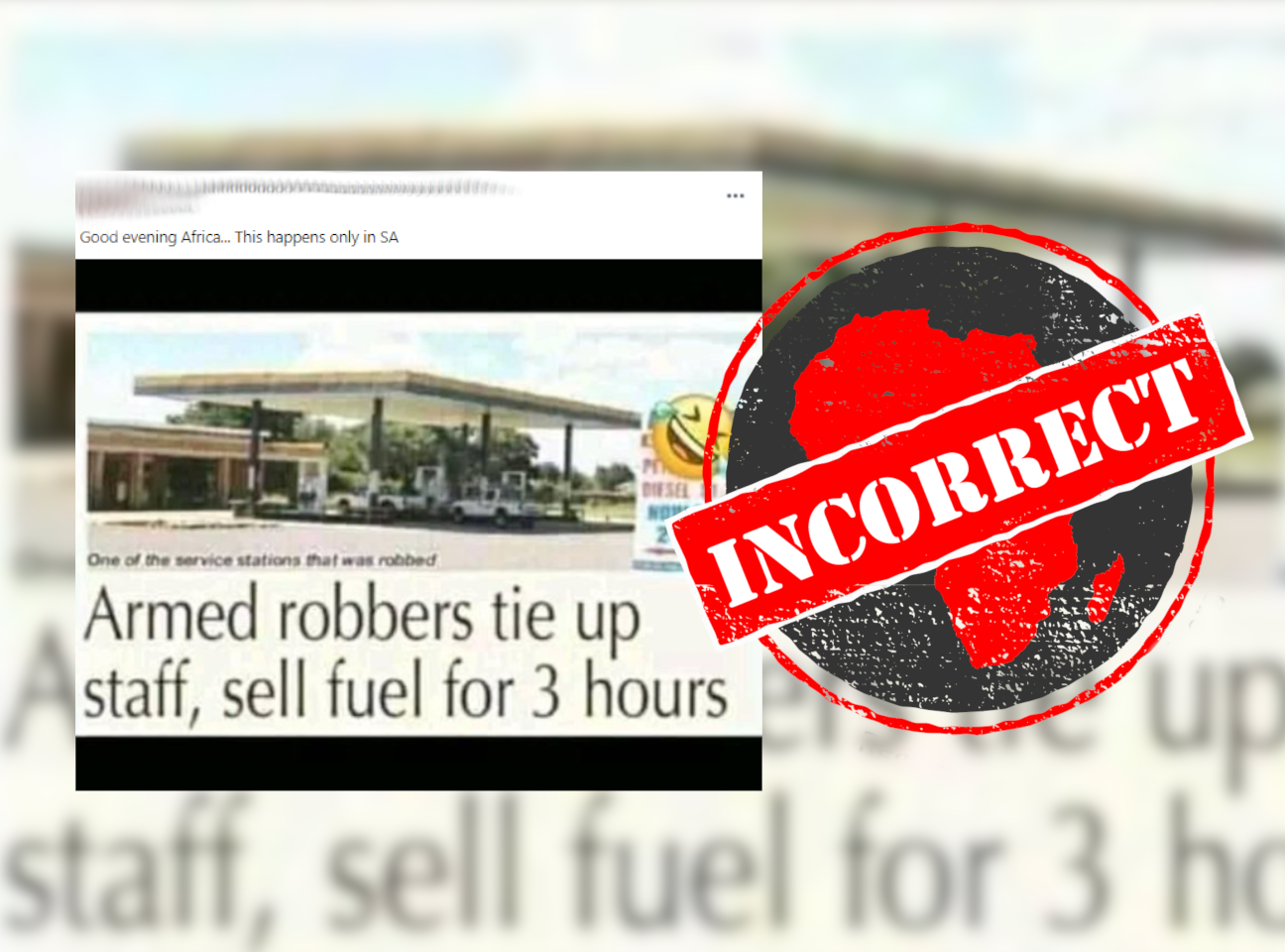“Armed robbers tie up staff, sell fuel for 3 hours,” reads the headline of a newspaper clipping posted on Facebook in April 2021.
Its photo shows a petrol station with cars parked near the fuel dispensers, captioned: “One of the service stations that was robbed.”
The clipping was posted with the comment: “Good evening Africa… This happens only in SA.”
Did the incident happen in South Africa? We checked.

Bulawayo-Victoria Falls road
Comments on the post point out that a sign at the entrance to the station – partially covered by a laugh emoji added to the digital image – shows the price of diesel in dollars. In South Africa, fuel is sold in rands, the local currency.
A Google reverse image search of the photo led us to several news reports on the incident, with the same headline, on Zimbabwe-based websites.
According to the reports, the robbery took place in early March at the Amakhosi Service Station on the Bulawayo-Victoria Falls road near Bulawayo, a city in the southwest of Zimbabwe.
“Sources said two fuel attendants and a security guard at Amakhosi Service Station were confronted by the gang that demanded cash at gunpoint,” Zimbabwe’s Chronicle newspaper reported.
“They then tied them with shoe laces before serving motorists and collecting cash for about three hours.”
The robbery was in Zimbabwe, not South Africa.
Republish our content for free
For publishers: what to do if your post is rated false
A fact-checker has rated your Facebook or Instagram post as “false”, “altered”, “partly false” or “missing context”. This could have serious consequences. What do you do?
Click on our guide for the steps you should follow.
Publishers guideAfrica Check teams up with Facebook
Africa Check is a partner in Meta's third-party fact-checking programme to help stop the spread of false information on social media.
The content we rate as “false” will be downgraded on Facebook and Instagram. This means fewer people will see it.
You can also help identify false information on Facebook. This guide explains how.


Add new comment